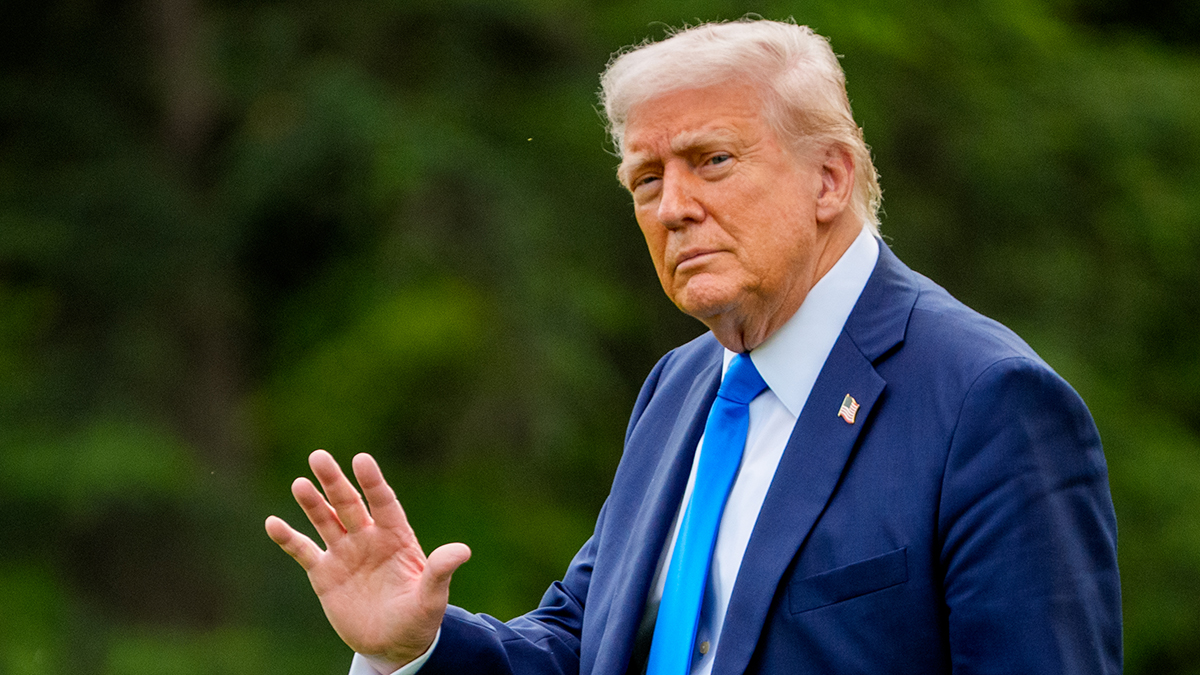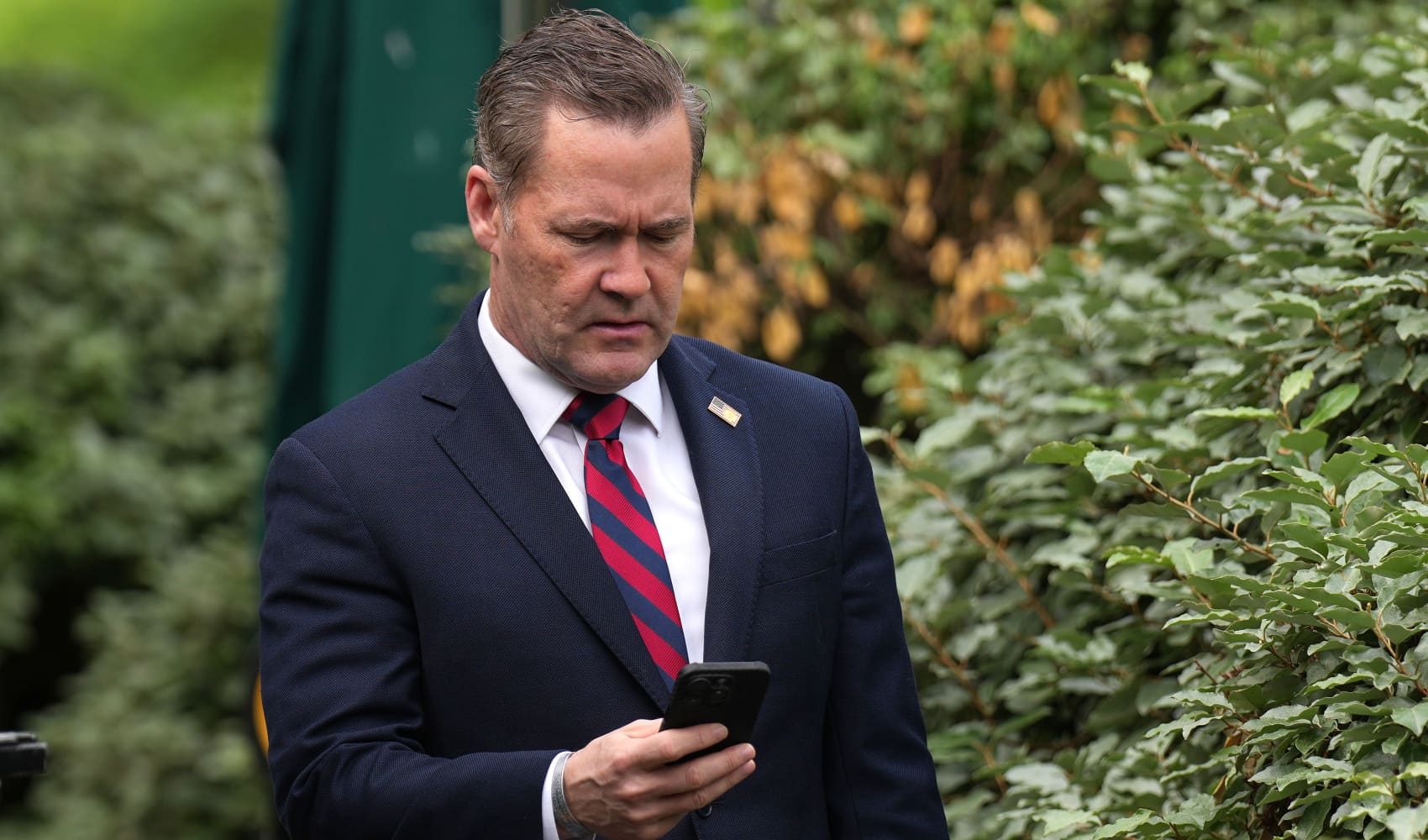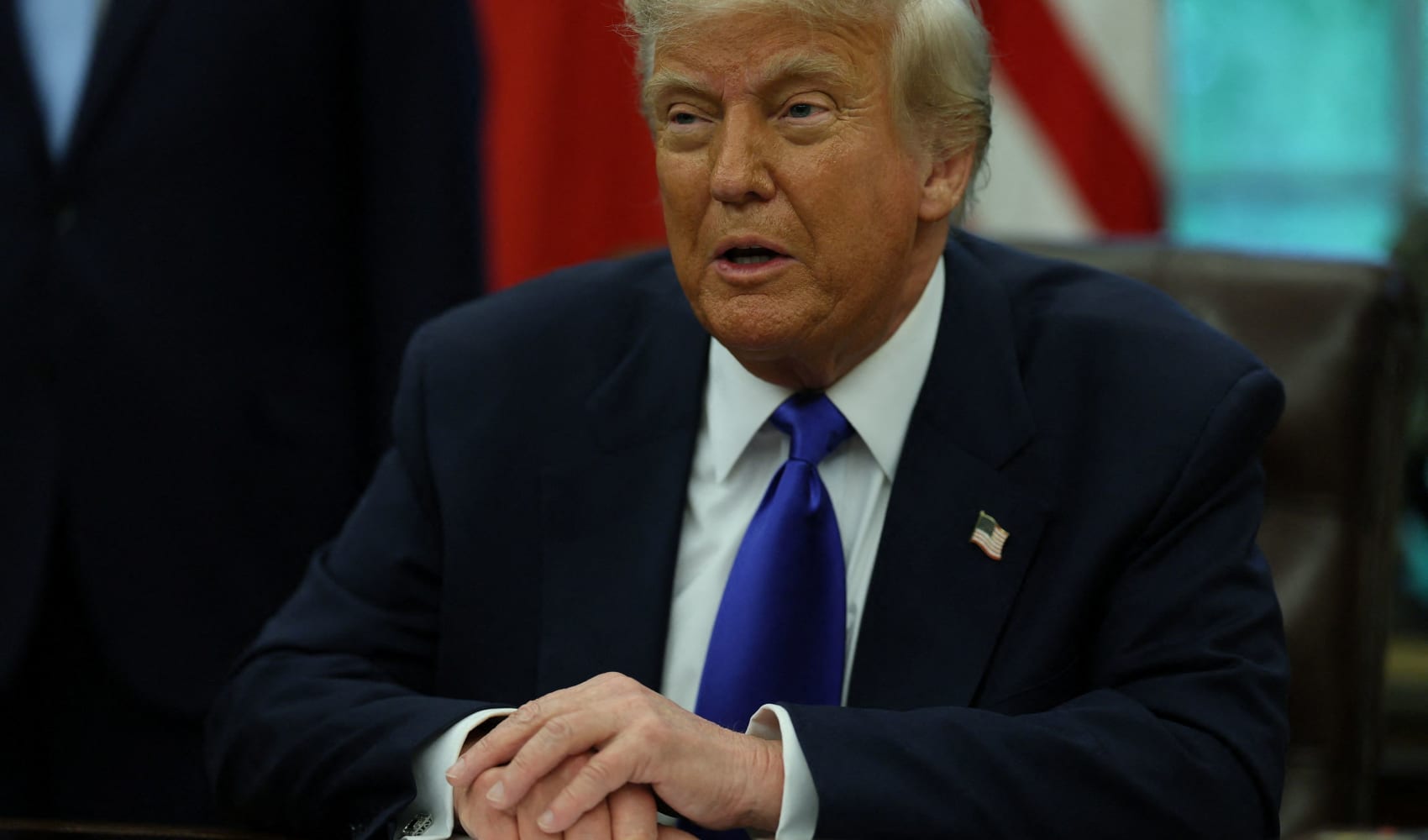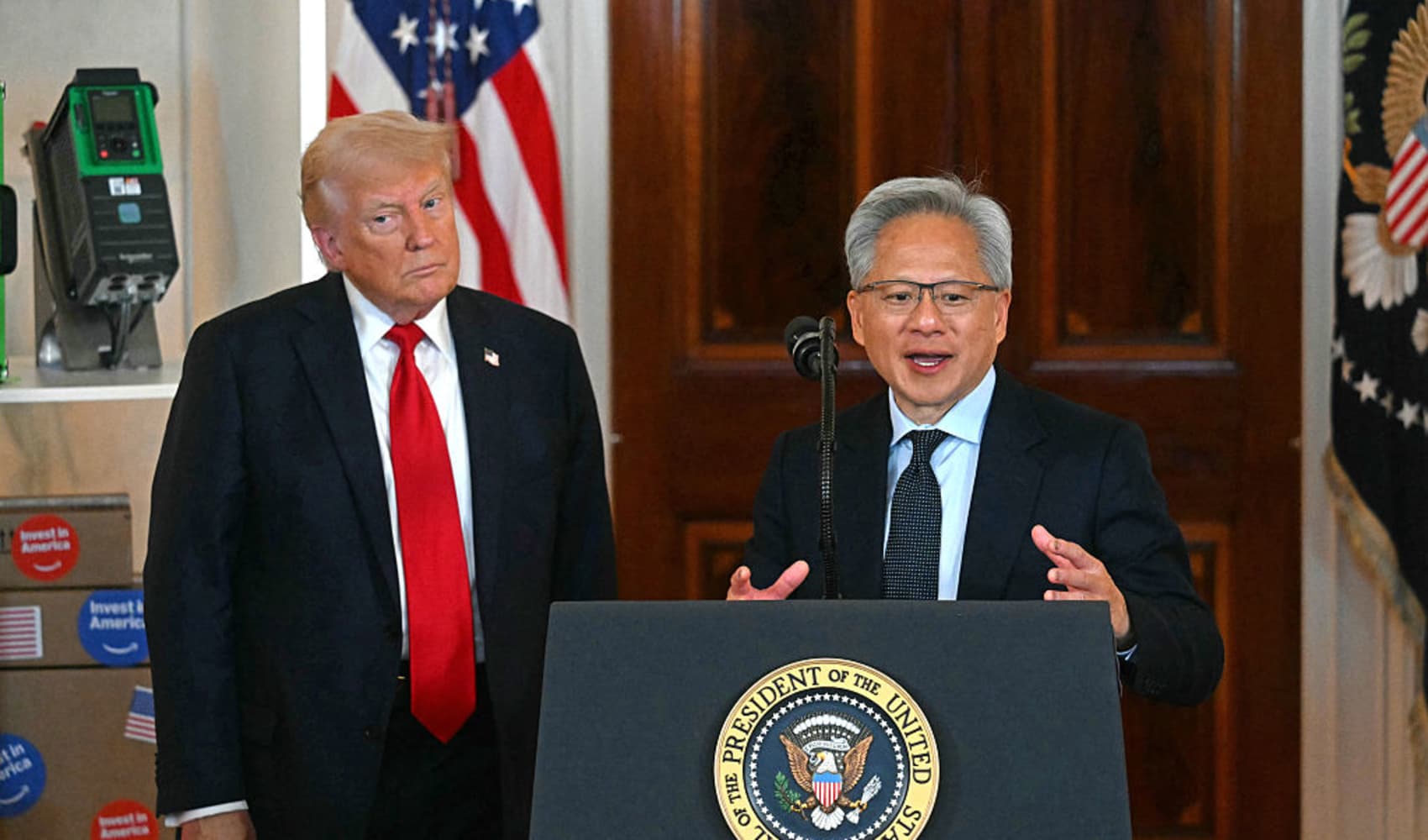Trump's Security Shakeup: UN Ambassador, Musk Exit, Policy Shift!
Trump's National Security Shake-Up: Waltz to UN, Rubio In, Musk Out!
Introduction: A New Chapter in National Security?
Hold onto your hats, folks! The political landscape is shifting again, and this time it involves a major shake-up in former President Trump's national security team. We're talking about a potential ambassador to the UN, an interim national security advisor, and even Elon Musk's involvement in governmental efficiency. It's a whirlwind of changes, and we're here to break it all down for you. What does this mean for the future of U.S. foreign policy and domestic affairs? Let's dive in and explore the ripple effects of these decisions. These changes could signal a significant shift in priorities and strategies.
Waltz to the UN: A New Voice on the World Stage
The Nomination Announcement
President Trump has announced his intention to nominate Mike Waltz as the U.S. ambassador to the United Nations. Who is Mike Waltz? He is a former Army Green Beret and current politician known for his hawkish views on foreign policy and national security. His nomination signals a potentially more assertive stance on the global stage. Will this lead to stronger alliances or further isolation? That's the million-dollar question.
What This Means for U.S. Foreign Policy
Waltz's appointment to the UN could signal a shift towards a more nationalistic approach to international relations. Think of it as a return to "America First," but with a seasoned veteran at the helm. Expect a focus on protecting U.S. interests and challenging perceived threats from rival nations. This could lead to some tense moments in the General Assembly.
Rubio's Interim Role: A Diplomatic Balancing Act
Secretary of State Takes the Reins
With Waltz heading to the UN, Secretary of State Marco Rubio will step in as the interim national security advisor. This is a crucial role, as the national security advisor coordinates foreign policy and national security matters across the government. Rubio's experience as Secretary of State will be invaluable, but can he juggle both roles effectively?
The Impact on National Security Strategy
Rubio's interim appointment provides a period of continuity, but it also raises questions about the long-term strategy. Will he maintain the current course, or will he implement his own vision for national security? His decisions will have a significant impact on everything from counterterrorism efforts to international trade agreements.
Musk's Exit: Focus on Business or Something More?
Stepping Back from Government Efficiency
Elon Musk, known for his entrepreneurial ventures and technological innovations, has announced his decision to step back from his role with the Department of Government Efficiency. Why is this significant? Because his involvement was already unconventional. His departure raises questions about the effectiveness of bringing private sector leaders into government roles.
The Implications for Government Innovation
Musk's involvement in government efficiency was an attempt to inject innovative thinking into the bureaucracy. His exit could be seen as a setback for those who believe in leveraging private sector expertise to improve government operations. Will other tech leaders be hesitant to follow suit?
Judicial Pushback: Alien Enemies Act Under Scrutiny
Trump-Appointed Judge Rejects Deportation Attempt
A Trump-appointed judge has rejected the administration's use of the Alien Enemies Act of 1798 to deport Venezuelans alleged to be members of the criminal organization Tren de Aragua. This is a significant legal challenge to the administration's immigration policies. Does this ruling set a precedent for future immigration cases?
The Future of Immigration Policy
This ruling highlights the ongoing legal battles surrounding immigration enforcement. The use of the Alien Enemies Act, a law dating back to the late 18th century, has been controversial. This case could lead to a reevaluation of the government's authority to deport individuals based on alleged criminal affiliations.
Analyzing the Interconnectedness of Events
A Web of Decisions and Their Consequences
These three seemingly disparate events – Waltz's nomination, Rubio's interim role, and Musk's departure – are interconnected. They reflect a broader trend of shifting priorities and evolving strategies within the political landscape. How will these changes shape the future of the United States? Only time will tell.
The Big Picture: Foreign Policy, Innovation, and Immigration
From foreign policy to government innovation to immigration enforcement, these events touch upon some of the most pressing issues facing the nation. Understanding the nuances of each decision is crucial for comprehending the overall direction of the country. Are we entering a new era of American leadership?
Potential Ramifications for U.S. Allies
The appointment of Mike Waltz to the UN could strain relations with countries that do not share his hawkish views. Stronger stances on international trade could also impact our diplomatic relations. How are our allies going to react to these changes?
Domestic Impact: Reactions from Political Parties
The changes within the former President Trump's administration are bound to trigger reactions from both sides of the political divide. How are the Democrats, Republicans and Independents likely to respond to these developments?
Global Economic Repercussions
Shifts in U.S. foreign policy and international trade agreements can have significant global economic repercussions. Are we going to see trade wars, shifts in global economic powers, and impacts on foreign investments?
The Role of Social Media in Shaping Public Opinion
Social media platforms are going to play a huge role in shaping public opinion and discourse about these shifts in national security and governmental roles. Will social media be a platform for enlightenment or division as these stories unfold?
Expert Opinions: Insights from Political Analysts
We need to consider the opinions of political analysts and foreign policy experts to gain deeper insights into the implications of these changes. What is their perspective on the potential benefits and risks of these developments?
A Look at Historical Precedents
Looking at historical precedents can provide valuable context for understanding the current situation and predicting potential outcomes. How do similar past instances of shifts in national security teams compare to this situation?
Public Sentiment: Gauging the National Mood
Understanding public sentiment is crucial for assessing the overall impact of these changes on the country. Are people generally optimistic, concerned, or indifferent towards these developments?
The Future of US Leadership in the World
The changes in national security, governmental efficiency and immigration all coalesce to point towards a new direction for US leadership in the world. It's a direction that will be closely followed. What kind of global leader will the US be under the new regime?
Conclusion: Key Takeaways and Future Watch
In conclusion, the recent shake-up in the national security team signals a potential shift in priorities and strategies. Mike Waltz's nomination to the UN, Marco Rubio's interim role, and Elon Musk's departure from government efficiency all have significant implications. It's crucial to stay informed and engaged as these events unfold and shape the future of the United States. Keep an eye on how these changes affect our foreign relations, domestic policies, and global standing.
Frequently Asked Questions (FAQs)
-
Q: What are Mike Waltz's key policy positions?
A: Mike Waltz is generally considered a foreign policy hawk. He supports a strong military presence abroad, assertive action against perceived threats, and a focus on protecting U.S. interests.
-
Q: How long will Marco Rubio serve as the interim national security advisor?
A: The duration of Marco Rubio's interim role is currently unspecified. It likely depends on the timeline for confirming Mike Waltz's nomination to the UN and the selection of a permanent national security advisor.
-
Q: Why did Elon Musk decide to step back from his role in government efficiency?
A: Elon Musk cited a need to focus on his businesses as the primary reason for his departure. However, the challenges of navigating government bureaucracy may have also played a role.
-
Q: What is the Alien Enemies Act of 1798?
A: The Alien Enemies Act is a law that grants the president the power to deport or detain citizens of hostile nations during times of war or declared invasion. Its use in modern immigration cases has been highly controversial.
-
Q: How could the recent events influence global trade relations?
A: The changes in the national security team could potentially impact global trade relations. With a nationalistic approach to trade and potentially aggressive stance, changes could involve new trade agreements, revised trade terms and renewed focus on domestic production.









